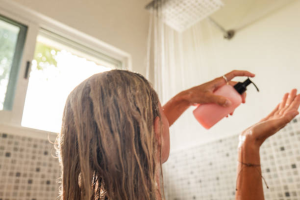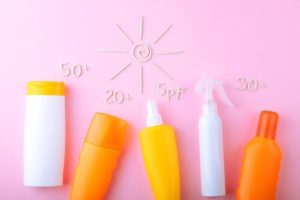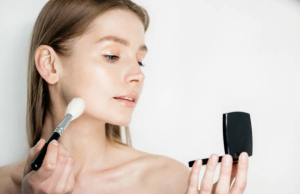
When it comes to lip care, we often reach for our trusty chapstick to provide relief from dryness and chapping. But what do you do when you find yourself without one? A question that arises in such a predicament is: Can you put lotion on your lips instead of chapstick? While the immediate answer may be tempting, it’s essential to consider the implications and differences between the two products. This article will delve into whether body lotion can serve as an emergency lip moisturizer and outline how it compares to products specifically designed for lip health.
Understanding the Skin on Your Lips

The skin covering our lips is notably thinner and more delicate than elsewhere on our body. It lacks the protective outer layer that the rest of our skin has, making it more susceptible to environmental factors. Unlike the rest of our skin, our lips do not contain oil glands, and therefore, cannot moisturize themselves, leading to a greater need for external sources of moisture and protection.
Due to their unique structure, lips are prone to losing moisture faster than other parts of the skin. This can lead to dryness, cracking, and even painful sores if not cared for properly. Products like chapstick contain special ingredients designed not only to hydrate but also to create a barrier to lock in moisture, shield against wind and sun damage, and support the healing process.
Chapstick vs. Lotion: The Composition Battle

While both chapsticks and lotions ultimately aim to moisturize, their formulations differ significantly to cater to different areas of the skin. Chapsticks often include waxes, oils, and butters that are solid at room temperature which helps them to form a protective layer over the lips. Lotions, on the other hand, tend to have higher water content and may contain more preservatives as they’re intended for wider skin coverage.
What’s in a Chapstick?
Chapstick, a popular form of lip balm, is designed to moisturize and protect the lips. Its formulation typically includes several key ingredients that work together to provide relief from dry, chapped lips. The primary component is a wax, often beeswax or carnauba wax, which provides a protective barrier that helps retain moisture. Emollients such as coconut oil, shea butter, or petroleum jelly are also common, adding moisture and softness. Chapsticks often contain vitamins, such as vitamin E, which can help repair skin damage. To protect lips from sun damage, some chapsticks include sunscreen components like oxybenzone or avobenzone. Additionally, many products contain flavorings and colorants to enhance their appeal.
The Common Ingredients in Lotion
Body lotions are formulated to absorb quickly, hydrate the skin, and provide a pleasant fragrance. Ingredients like glycerin, emollients, and various oils help achieve these purposes.
Table: Ingredient Comparison Between Lotion and Chapstick
| Ingredient | Found in Lotion | Found in Chapstick |
|---|---|---|
| Glycerin | Yes | Sometimes |
| Beeswax | No | Yes |
| Fragrance | Yes | Varies |
| Vitamin E | Yes | Yes |
| Oils (e.g., Jojoba, Coconut) | Yes | Yes |
Comparing the Two: Can Lotion Serve Your Lips Justice?
While it may seem convenient to use lotion on your lips in a moment of need, there are substantial considerations to be made. Since many lotions contain ingredients like fragrances and preservatives that could irritate the sensitive lip area, their use as a lip moisturizer should be cautious. In contrast, chapsticks are devoid of such irritants, making them a safer bet for lip health.
Pros and Cons of Using Lotion on Your Lips
It’s important to weigh the advantages and potential risks before using lotion on your lips. Under certain circumstances, such as in an extremely dry environment where nothing else is available, applying a small amount of lotion might provide temporary relief to parched lips.
1. Temporary moisture: In the absence of chapstick, a small dab of lotion may temporarily alleviate dryness.
2. Accessibility: Lotion is a common household item and might be more readily available than chapstick in a pinch.
Potential Drawbacks and Considerations
Lotion is not meant for ingestion and can taste unpleasant if it gets into your mouth. Also, the moisturizing effects may not last as long as those from products designed for the lips, and you might find yourself needing to reapply more frequently. Constant reapplication can lead to a cycle of dryness and reliance on a suboptimal product for lip care.
Alternatives to Chapstick When in Need
If lotion is not recommended as a substitute for chapstick, what can you use when your lips need immediate moisture? Here are a few alternatives.
DIY Lip Remedies
If you’re in a crafty mood or enjoy natural solutions, consider whipping up your homemade lip balm with ingredients from your kitchen.
Numbered List: DIY Lip Balm Ingredients
- Coconut Oil – Great for moisture and has a pleasant taste.
- Shea Butter – Provides a creamy texture and is known for its healing properties.
- Beeswax – Helps solidify the mixture and creates a barrier to lock in moisture.
Conclusion
In summary, while it might be tempting to use body lotion as a makeshift chapstick, caution should be exercised. Understanding the unique needs of your lips and the ingredients that best serve them is essential. In emergency situations, if you opt for lotion, choose one without fragrances and irritants, and consider the alternatives mentioned above for long-term lip health care strategies.
FAQs
- Is it safe to put any type of lotion on my lips?
It is not recommended to use just any lotion on your lips due to the potential for irritation from fragrances and other ingredients. If in a pinch, opt for a lotion that is fragrance-free and hypoallergenic. - What should I look for in a lotion if I’m going to use it on my lips?
Seek lotions with hydrating ingredients such as hyaluronic acid, glycerin, and ceramides, and avoid those with alcohol or fragrance which can be drying or irritating. - How often can I apply lotion to my lips?
Use lotion on your lips sparingly and not as a regular practice. If you find yourself needing to moisturize your lips often, purchase a dedicated lip balm or chapstick instead. - Can using lotion on my lips cause long-term damage?
Occasional use of the right kind of lotion is unlikely to cause long-term harm. However, frequent use of incorrect lotions can lead to irritation, chapping, or allergic reactions. - Are there any natural oils I can use instead of chapstick or lotion?
Natural oils such as coconut oil, almond oil, and jojoba oil can provide moisture and protection for the lips. They are common in many DIY lip care remedies.





